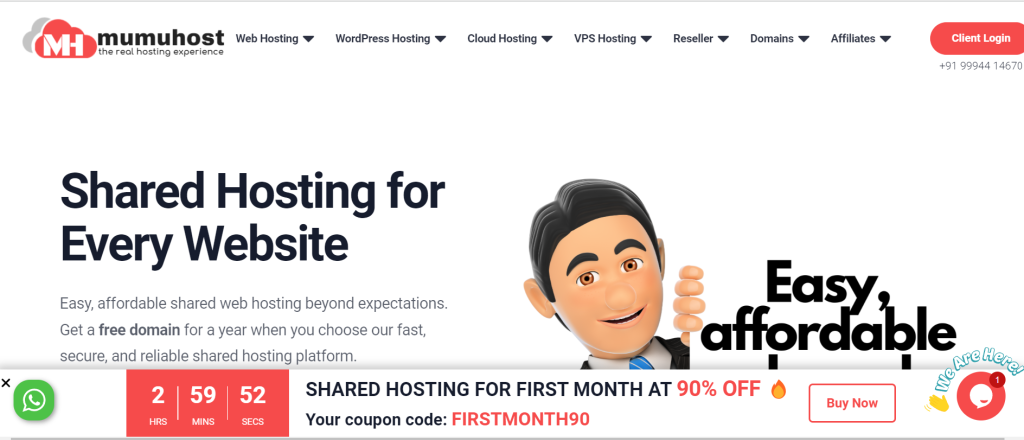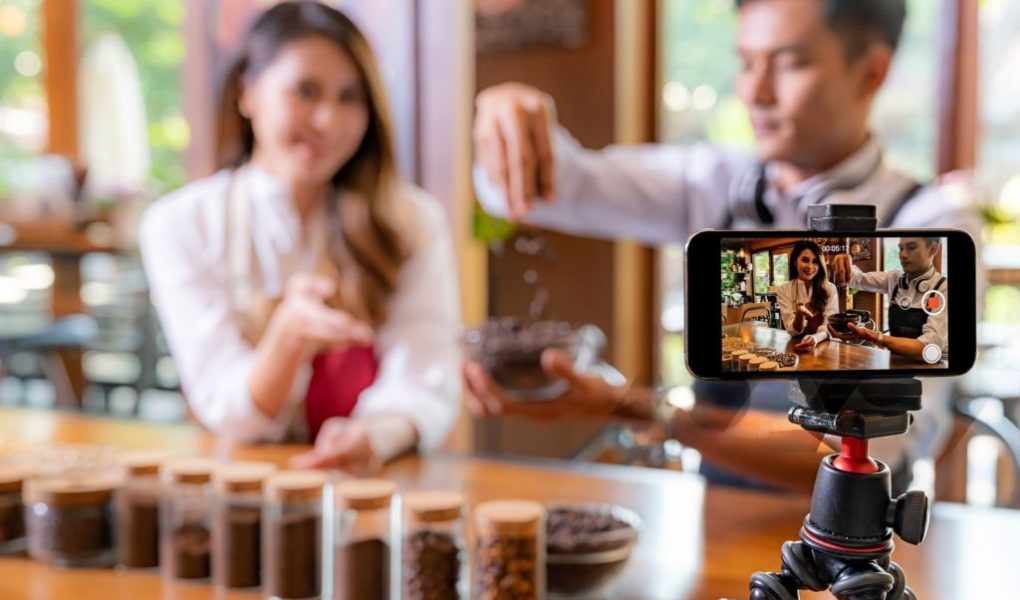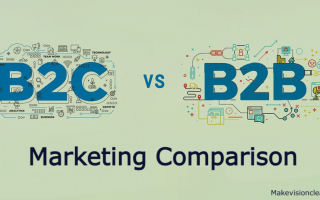Having a strong online presence is essential, particularly for catering businesses. This guide focuses on digital marketing for catering, offering step-by-step advice to enhance your online strategy.
We begin with choosing the right domain name, a crucial first step that establishes your brand’s online identity. Selecting a reliable hosting provider follows, ensuring your website’s smooth operation, a vital part of digital marketing for catering.
We’ll then explore website design and development, emphasizing user-friendly and attractive layouts. A major focus is on Search Engine Optimization (SEO), crucial for making your site visible to potential customers. We also cover the importance of mobile-friendly design, considering the widespread use of smartphones.
Local SEO is highlighted for attracting nearby clients, a key strategy in digital marketing for catering business. We’ll discuss launching effective social media campaigns and utilizing paid advertisements to increase online visibility. Finally, we emphasize the importance of regularly analyzing and adjusting your strategy to maintain successful digital marketing for your catering business.
Table of Contents
Choose Your Domain Name
When you’re picking a domain name for your catering company, think of it as the name on your store’s sign but online. You want a name that’s short, easy to remember and says something about your business. Try to keep it simple so it’s easy for people to spell and say. If your business is local, using your city or area in the name can help local customers find you.
Before you decide on a name, make sure no one else is using it. Also, think about the ending of the name, like .com, .net, or .catering, and While .com. A good domain name is a big part of how people see your business on the internet, so choose one that fits well and makes a good impression.
See also: Digital Marketing Trends by Industry Experts
Select Your Hosting Provider
Once you have your domain name, the next step is choosing a hosting provider. This is like picking a home for your website on the internet.
Here are some things to keep in mind when picking a hosting provider:
- Reliability: You want a hosting provider that keeps your website running all the time. If your website is often down, people can’t visit it.
- Speed: Choose a provider that makes your website load fast. If your website is slow, visitors might leave before seeing what you offer.
- Support: Sometimes things go wrong, and you’ll need help. Look for a provider with good customer support that’s there when you need it.
- Price: Hosting can cost different amounts. Find a provider that fits your budget but still offers good service.
- Growth: As your catering business grows, your website will too. Pick a provider that can handle more visitors and more pages as you expand.
For me, two good options are Mumuhost and Hostinger. Here’s a bit about each:
Mumuhost: Mumuhost offers various hosting plans, making it a flexible choice for different needs. They provide features like a free domain, 24/7 customer support, and a 99.99% uptime guarantee, ensuring your website is almost always available to visitors.

They also offer daily backups for your website’s safety and a free website migration service, which is great if you’re moving your site from another host. Their plans are affordable, starting at around ₹49 per month, and they have a 30-day money-back guarantee, so you can try their services risk-free.
Hostinger: Hostinger is known for its reliable and affordable hosting services. They offer a range of plans, including shared hosting, WordPress hosting, and cloud hosting. Hostinger’s features include a free domain, unlimited bandwidth, and SSD storage for faster website performance. They also provide a free SSL certificate to keep your website secure.
With a global network of data centers, they ensure fast website loading times. Their customer support is available 24/7, and they have a 99.9% uptime guarantee. Prices are competitive, with plans starting at $2.99 per month.
Both Mumuhost and Hostinger offer a range of features that can cater to the needs of a catering company’s website, from reliability and speed to customer support and security. Depending on your specific needs and budget, either of these providers could be a great choice for hosting your website.
Design and Develop Your Website
Once you have your domain and hosting set up, it’s time to design and develop your website. This is like building and decorating your store, but online. Here’s how to do it simply:
Start with a Plan: Think about what you need on your website. Most catering companies need a menu, a photo gallery, contact information, and maybe a blog or a section for customer reviews.
Keep It User-Friendly: Make sure your website is easy to use. The menu should be easy to find, and it should be simple for visitors to contact you or make an order.
Use Good Photos: Since you’re in the catering business, photos are really important. Use high-quality images of your food and events to show what you can do.
Mobile-Friendly Design: A lot of people will visit your website from their phones, so make sure it looks good and works well on mobile devices too.
Easy to Update: Choose a website design that is easy for you to update. This way, you can change your menu, add new photos, or post blog updates without needing a lot of technical help.
SEO Basics: Use clear titles for your pages and include words that people might use to search for your services, like “catering services” or “wedding catering.”
Designing and developing your website doesn’t have to be complicated. Keep it simple, focus on what your customers need to know, and make sure it represents your catering business well.
See also: Why SEO Matters for Small Businesses?
Optimize Your Website for Search Engines
Optimizing your website for search engines, or SEO is crucial for helping people find your catering business online. Here’s how to do it in simple steps:
Keywords and Meta Optimization
Leveraging the right keywords and meta tags is essential. Start by identifying phrases your potential clients might search for, such as “wedding catering” or “corporate event catering.” These keywords should be woven into the text of your website, including titles, headings, and descriptions. Additionally, incorporating these keywords into the meta tags of your web pages is crucial.
Meta tags, though not visible on the webpage itself, play a vital role in the background. They provide search engines with a synopsis of what your page entails, significantly aiding in the comprehension and categorization of your content.
Keyword Placement
Effective keyword placement is a cornerstone of SEO. When it comes to your catering business’s website, strategically position these keywords across various sections – from the homepage and service pages to blog posts. It’s important to maintain a balance; the inclusion of keywords should feel natural and contextually appropriate.
Overstuffing your pages with keywords can be counterproductive, leading to a decline in user experience and potentially affecting your search engine rankings negatively. The goal is to integrate them seamlessly, enhancing both readability and search engine visibility.
Content Optimization
Content optimization is a vital aspect of SEO, especially for a catering business aiming to enhance its online presence. This process involves refining your website’s content to make it more attractive to both search engines and your audience. Start by ensuring your content is clear, engaging, and informative, addressing the needs and questions of your potential customers.
Use language that resonates with your audience, explaining your services, specialties, and unique selling points. Incorporating relevant keywords is important, but they must be used judiciously to maintain the natural flow and readability of the content.
To further optimize your digital content, focus on structure. Using headings, bullet points, and short paragraphs can significantly enhance readability. This approach not only aids your visitors in quickly skimming and grasping the key points of your content, but it also assists search engines in comprehending the hierarchy and relevance of your material.
In this context, consider using a AI Content Writing Tools . One of our favorite tools, Scalenut, is a comprehensive platform for content creation and optimization. It’s tailored to streamline and elevate your content strategy. Offering a suite of features, from SEO-centric content suggestions to tools for crafting more engaging and pertinent material, Scalenut is a game-changer. Implementing this tool can save significant time and markedly enhance the quality and effectiveness of your digital marketing initiatives.
Incorporate images and videos where appropriate, ensuring they are optimized for fast loading and tagged with descriptive, keyword-rich alt text. Regularly updating your content, such as adding new menu items, catering tips, or client testimonials, keeps your website fresh and engaging, encouraging repeat visits and improving search engine rankings. Read this guide to learn more Advantages Of Content Optimization For Online Marketing.
Technical SEO
Technical SEO is a critical component of your overall SEO strategy. It involves optimizing the backend aspects of your website to ensure a smooth, efficient, and secure user experience. This includes ensuring fast loading speeds, implementing HTTPS for enhanced security, and creating a sitemap that facilitates easier navigation for search engines.
Additionally, regularly check for and fix any broken links or pages. These technical elements not only improve the user experience but also signal to search engines that your website is reliable and well-maintained, contributing positively to your search rankings.
Schema Markup
Schema markup is a powerful tool in SEO, acting like a translator for search engines. By implementing this code on your catering website, you provide search engines with detailed information about your content. For instance, you can use schema markup for your menu listings, customer reviews, and business details.
This not only aids search engines in understanding and displaying your content more effectively but also enhances the way your website appears in search results. This can include rich snippets that provide a more engaging and informative appearance in search results, potentially increasing click-through rates.
Mobile-Friendly Design
Having a mobile-friendly website is no longer optional; it’s imperative. With the increasing prevalence of mobile browsing, search engines prioritize websites that offer a seamless mobile experience. Ensure that your catering business’s website is optimized for mobile devices, with responsive design elements that adjust smoothly to different screen sizes. This not only caters to the needs of your mobile audience but also aligns with search engine preferences, which can positively impact your search rankings.
Regular Updates
Keeping your website updated is crucial for both engaging your audience and maintaining search engine relevance. Regularly refreshing your website with new content, such as updated menus, recent event highlights, or customer testimonials, keeps your site dynamic and engaging.
This practice signals to search engines that your website is active and relevant, encouraging them to index your pages more frequently. Additionally, fresh content provides more opportunities to incorporate relevant keywords and topics, further enhancing your SEO efforts.
Building Backlinks
Backlinks, fundamentally, are links that lead from other websites back to your own. They act much like personal recommendations in the digital marketing. These links are highly valued in SEO as they signal to search engines that others find your content valuable and relevant.
For a catering or event planning business, acquiring backlinks from respected and relevant websites such as industry leaders, local business directories, or event planning blogs can significantly enhance your website’s credibility.
This, in turn, can positively impact your site’s ranking in search results, making it more visible to potential customers. It’s not just about quantity; the quality and relevance of these backlinks play a crucial role in boosting your website’s authority.
See also: 15 Ways To Build Free Backlinks That Actually Get Results
Strategic Acquisition of Backlinks
When it comes to gaining backlinks, it’s crucial to adopt a strategic approach. Seek out opportunities where your website can be linked from sites that are not only reputable but also align closely with catering, event planning, or the local business scene.
Engaging in community events, collaborating with local businesses for mutual promotion, or contributing guest articles to well-known event planning blogs can create natural backlink opportunities.
Remember, each backlink is a vote of confidence in your content, and search engines like Google take these endorsements seriously when determining the authority and ranking of your site. This strategy helps in building a strong backlink profile that not only enhances your online presence but also drives organic traffic to your site.
The Impact of Quality Backlinks
The quality of backlinks you acquire has a direct impact on your website’s search engine rankings. High-quality backlinks from websites that are authoritative and relevant to your niche – such as established catering blogs, event industry news sites, or local business forums – can significantly elevate your website’s authority. This elevation in authority is recognized by search engines, leading to improved rankings in search results. Google Confirms The Importance Of Backlinks Strength.
It’s a virtuous cycle: higher rankings result in increased visibility, which leads to more traffic, and potentially, more high-quality backlinks. It’s important to focus on building relationships with key industry players and engaging in community events, as these connections can lead to valuable backlink opportunities. Remember, a strong backlink from a reputable site can be more beneficial than numerous low-quality links.
By focusing on these SEO elements, including backlinks, you can improve your website’s visibility in search engine results, making it easier for potential customers to find your catering services online.
Make Your Website Mobile-Friendly
It’s important to make sure your website works well on mobile devices like phones and tablets. Many people use these devices to browse the internet, so your site needs to be easy to use on smaller screens. Here are some simple tips:
- Use a Responsive Design: This means your website adjusts itself to look good on any screen, big or small. It changes its layout automatically so it’s easy to read and use on a phone or tablet.
- Make Sure It Loads Quickly: People on mobile devices don’t like to wait long for websites to load. Keep your website simple and avoid large files that can slow it down.
- Easy Navigation: Your website should be easy to get around on a small screen. Big buttons and a straightforward menu help people find what they need quickly.
- Text Should Be Easy to Read: On a small screen, your text needs to be clear and big enough to read without zooming in.
- Test on Different Devices: Look at your website on various phones and tablets to make sure it looks and works well on all of them.
Having a mobile-friendly website means that everyone, no matter how they access the internet, can easily find and enjoy what your catering business offers.
Local SEO
Local SEO is all about making your catering business easy to find for people in your area. When someone nearby searches for a catering service, you want your business to show up. Here’s how to do it:
1. Google My Business Optimization: Establishing a Google My Business (GMB) account is a fundamental step for local SEO. This platform allows your catering business to appear in local searches and on Google Maps. It’s crucial to provide complete and accurate details, including your address, contact number, and operational hours. Regularly updating your GMB profile with photos and special offers can further enhance your local visibility.
2. Incorporating Local Keywords: Tailoring your website’s content with local keywords is key to attracting a nearby audience. This involves integrating location-specific phrases alongside your catering services. For instance, if your business is based in Santa Clarita, incorporating terms like “Santa Clarita catering services” can significantly improve your local search relevance. It’s important to blend these keywords seamlessly into your content to maintain readability and appeal.
3. Listing in Local Directories: Getting your catering business listed in local online directories is another effective strategy. This not only broadens your visibility to potential customers but also contributes to better search engine rankings. Consistent and accurate listings across various directories can establish a strong local online presence for your business.
4. Encouraging Customer Reviews: Positive customer reviews are a powerful tool for improving local SEO. Actively encourage your satisfied clients to share their experiences online. This can significantly boost your business’s credibility and local search rankings. Responding to reviews, both positive and negative, demonstrates your commitment to customer satisfaction.
5. Collaborating with a Digital Marketing Agency: Partnering with a catering digital marketing agency specializing in catering can provide access to more advanced local SEO strategies. These experts can offer tailored advice and implement effective campaigns to enhance your local online presence.
6. Judicious Use of Language: When crafting content, it’s important to avoid overusing jargon or complex language. Strive for clarity and simplicity in your writing, ensuring that it’s easy to understand and resonates with your local audience. Keyword stuffing, or the unnatural incorporation of keywords, should be avoided as it can detract from the user experience and potentially harm your SEO efforts.
Start Your Social Media Campaign
Starting a social media campaign is a big part of digital marketing strategies for your catering business. It’s like opening a window to show the world what you do. Here’s how to do it in simple steps:
Choosing the Right Platforms: Starting a social media campaign for your catering business is a strategic step in enhancing your digital marketing. It’s about showcasing your offerings to a wider audience. The key is to select platforms where your potential customers are most active. For a catering business, visually rich platforms like Instagram and Facebook are ideal. They allow you to display mouth-watering images of your culinary creations and share updates about your services, connecting you directly with your audience.
Creating a Content Plan: A well-thought-out content plan is crucial. Think of it as your roadmap for what to share online. This might include tantalizing photos of your dishes, glimpses into the events you cater, or glowing testimonials from satisfied customers. A consistent and well-planned content approach ensures you regularly engage with your audience, keeping your brand at the forefront of their minds.
Engaging with Your Audience: Interaction is a cornerstone of social media. It’s not just about posting content; it’s also about building relationships with your followers. Respond to their queries, acknowledge their comments, and join in the conversation. This two-way interaction fosters a community around your brand and enhances customer loyalty.
Using High-Quality Images: In the catering business, presentation is everything. High-quality images are essential to making your dishes look as delicious online as they do on the plate. Appealing visuals not only attract attention but also encourage shares and engagement, extending your reach.
Promoting Special Offers: Leverage your social media presence to broadcast special promotions or introduce new services. This is an effective way to draw in new clients and retain existing ones, giving them reasons to continue engaging with your brand.
Tracking Progress: Monitoring the performance of your posts is key to understanding your audience’s preferences. Pay attention to the types of content that resonate with your followers. This insight allows you to refine your strategy and focus on what truly appeals to your audience, maximizing the impact of your social media efforts.
Sensible Use of Language: When crafting your social media content, it’s important to use language that resonates with your audience without overcomplicating your message. Avoid jargon and overly complex terms. Instead, opt for clear, straightforward language that accurately conveys your message and reflects the essence of your brand. This approach ensures that your content is accessible and engaging to a wide audience.
Starting a social media campaign can help get the word out about your catering business. It’s a key part of your digital marketing strategies, helping you connect with customers and show off what you can do.
Run Paid Advertisements
Incorporating paid advertisements into your digital marketing strategies for your catering business is like placing a spotlight on your services. Here’s a straightforward approach:
Decide on Your Spending: When it comes to paid advertisements for your catering business, it’s essential to determine your budget carefully. This step is about balancing your spending with the potential to attract new customers. A well-planned budget ensures you get the most out of your investment, reaching your target audience effectively without overextending your resources.
Pick Suitable Platforms: Identifying where your prospective clients spend their time online is key. For a catering business, platforms such as Google Ads, Facebook, and Instagram are valuable. They offer the ability to target local audiences actively searching for catering services, thereby increasing the likelihood of reaching people who need what you offer.
Craft Attractive Ads: The appeal of your ads is crucial. Utilize captivating images of your dishes or events and pair them with clear, concise descriptions that highlight your services’ unique aspects. Your ads should not only grab attention but also convey the essence of your catering business, enticing viewers to learn more.
Focus on Your Target Audience: Precision in targeting ensures that your ads reach individuals most likely to require your services. By focusing on specific demographics such as location, interests, or behaviors, you increase the efficiency of your advertising, making sure it resonates with those who are in the market for a caterer.
Using Clear and Simple Language: In your advertisements, clarity and simplicity are key. Avoid complex jargon or overly elaborate phrases. Your goal is to communicate your message effectively and attractively, ensuring that potential customers easily understand what you offer and are motivated to engage with your business.
Monitoring Ad Performance: Regularly tracking the performance of your advertisements is vital. Pay attention to metrics like reach, engagement, and conversion rates. This feedback allows you to understand the effectiveness of your ads and make informed adjustments, continually optimizing your approach for better results.
Using paid advertisements effectively can significantly boost your catering business’s visibility and attract more customers. It’s a vital component of a comprehensive digital marketing strategy.
Analyzing and Adjusting Your Strategy
After you start using digital marketing services for your catering business, it’s important to check how well they are working and make changes if needed. This is like looking at what’s working in your kitchen and what’s not, then adjusting your recipes accordingly. Here’s how to do it simply:
Look at Your Results: Use tools to see how many people visit your website, how they find it, and what they do there. For social media, check how many people like, share, and comment on your posts.
Ask for Feedback: Sometimes the best way to know how you’re doing is to ask your customers. You can do this through surveys or by simply asking for comments on your social media posts.
See What’s Popular: Pay attention to which parts of your website or which social media posts get the most attention. This can tell you what your customers like and what they want more of.
Make Changes: If something isn’t working well, don’t be afraid to change it. This could mean updating parts of your website, trying different types of posts on social media, or changing how you talk about your services.
Keep Learning: Digital marketing is always changing, so it’s important to keep learning and trying new things. This will help you stay up to date-and keep attracting customers.
Looking at and changing your strategy is a big part of using digital marketing services. It helps you figure out what’s best for your catering business and keeps your marketing fresh and effective.
Last Thoughts
Our blog equips you with straightforward and impactful methods to boost the online presence of your catering business. From selecting an ideal domain name to excelling in social media and SEO, we share useful tips designed to make your brand shine. If you’re seeking more tailored advice and digital marketing services, don’t hesitate to contact us at Make Vision Clear. We’re here to guide you in transforming your catering business into a thriving online success.



